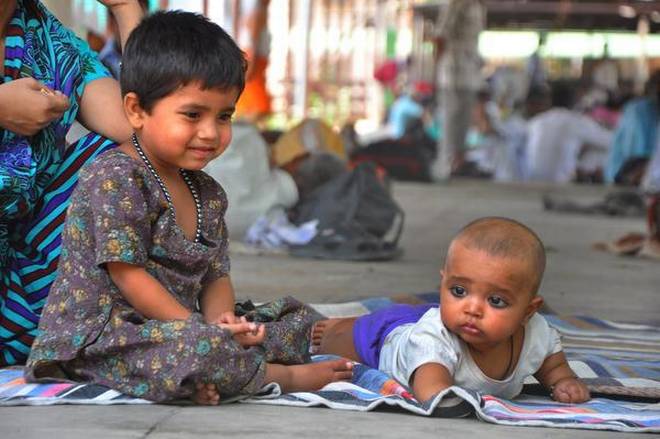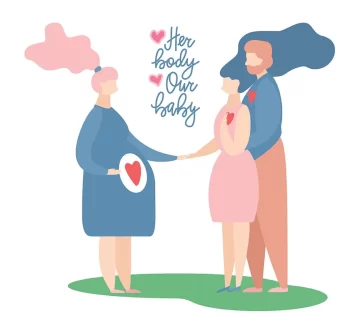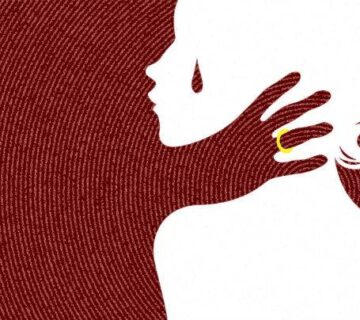This article is authored by Kanika Dayma and edited by Mr. Anoop Prakash Awasthi, AOR and Adv. Parthvi Ahuja.
Adoption is the admission of a stranger by birth to the privileges of a child by a legally recognized form of affiliation. In India, there are two legislation that provides the provisions of adoption of a child. These are the Hindu Adoption and Maintenance Act, 1956 and the Juvenile Justice (Care and Protection of Children) Act, 2000. Also , there is a legislation named The Guardians and Wards Act, 1890 that is made for the non-Hindus to adopt a child.
Section 2(2) of the Juvenile Justice (Care and Protection) Act 2015 defines the term ‘adoption’ as “the process through which the adopted child is permanently
separated from his biological parents and becomes the lawful child of his adoptive
parents with all the rights, privileges and responsibilities that are attached to a biological child.” Chapter VIII of the Act presents the concept of adoption and eligibility of prospective adoptive parents, its procedure and effect.
The Act along with Adoption Regulation, 2017 has recognized five kinds of adoption as
i. an abandoned, surrendered, destitute child/ren adopted by unrelated person/s living within the country
ii. an abandoned, surrendered, destitute child/ren adopted by unrelated person/s living outside the country
iii. a related child by relatives living within the country
iv. a related child by relatives living outside the country
v. adoption of a child by step parents within the country
Hindu Adoption and Maintenance Act, 1956 deals with the subject of adoption and maintenance among the Hindus. Chapter II of the Act focuses on the requisites of a valid adoption(Section 6), capacity of a male Hindu to take in adoption(Section 7) and capacity of a female Hindu to take in adoption(Section 8), persons capable of giving in adoption(Section 9) and persons who may be adopted(Section 10).
The case of Brijendra Singh vs. State of MP discusses the issue of whether a separated Hindu woman has the right to adopt under Section 8 of the Act.
The cases Karam Singh and Ors. vs. Jagsir Singh and Ors, 2014 and M. Vanaja vs. M. Sarla Devi, 2020 outlines the Section 6 of the Act.
Section 41 of the Justice (Care and Protection of Children) Act, 2000 deals with the adoption of a child which states that the primary responsibility for providing care and protection to children shall be that of his family. Further, Section 41(5) states that no child shall be offered for adoption—
(a) until two members of the Committee declare the child legally free for placement in the case of abandoned children,
(b) till the two months period for reconsideration by the parent is over in the case of surrendered children, and
(c) without his consent in the case of a child who can understand and express his consent. 2[(6) The Court may allow a child to be given in adoption—
(a) to a person irrespective of Marital status or;
(b) to parents to adopt a child of same sex irrespective of the number of living biological sons or daughters; or
(c) to childless couples.
People belonging to the religion other than the Hindus can rely on the Guardians and Wards Act, 1890 for the adoption of a child. This Act authorizes the court of the ward to appoint a guardian for a minor. Section 7 of the Act provides the power of the Court to make order as to guardianship while Section 17 of the Act talks about the appointing or declaring the guardian of a minor by the court for the welfare of the minor.
Central Adoption Resource Authority (CARA) is a statutory body of the Ministry of Women & Child Development, Government of India. It functions as the nodal body for adoption of Indian children and is mandated to monitor and regulate in-country and inter-country adoptions. Its Regulation 5 tells the eligibility criteria for prospective adoptive parents
In a recent case Shahistha v. The State, the legal validity of an unregistered agreement for adoption entered between biological parents of an unborn child and the adoptive parents was being questioned before the Karnataka High Court in December 2022. The division bench came to the conclusion that the agreement was made for an object that was unknown to law and it is well settled that an unborn child has a life and rights of its own and the rights of the unborn are recognised by law as under Article 21 of the Indian Constitution.
To conclude, these above legislations contribute towards the idea of adoption of a child regardless of the gender, caste and religion of the person adopting.
Relevant links-
- Hindu Adoption and Maintenance Act, 1956
https://legislative.gov.in/sites/default/files/A1956-78_0.pdf
Cases – http://student.manupatra.com/Academic/Studentmodules/Family-law/Hindu-Law/HAMA-1956.htm
- The Guardians and Wards Act, 1890
https://legislative.gov.in/sites/default/files/A1890-8.pdf
- Justice (Care and Protection of Children) Act, 2000
https://www.indiacode.nic.in/repealed-act/repealed_act_documents/A2000-56.pdf
- Central Adoption Resource Authority https://cara.nic.in/






